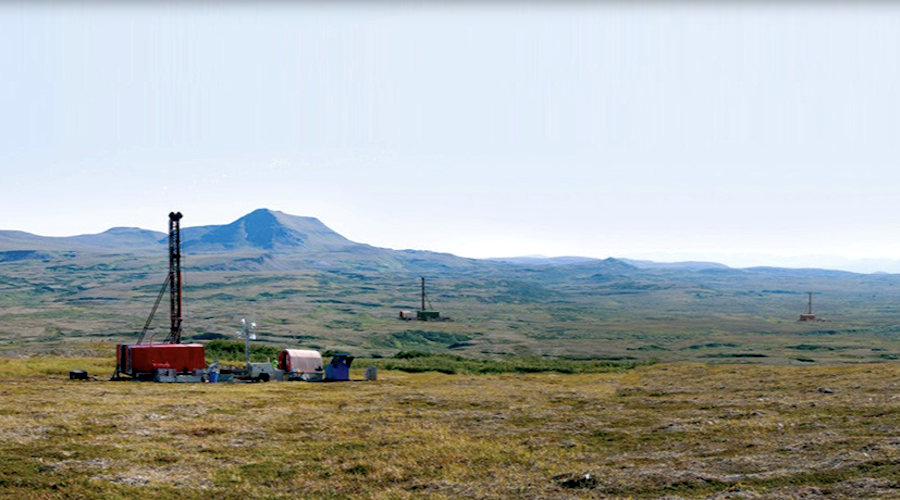Pebble mine stakeholders up pressure as EPA’s final decision nears


Opponents and supporters of Northern Dynasty Minerals’ (TSX: NDM; NYSE: NAK) long-stalled Pebble copper-gold project in Alaska are stepping up pressure on the US Environmental Protection Agency (EPA) to make a decision on the proposed mine both groups deem fair.
Alaska Natives, conservationists and commercial fishermen seem confident the EPA will announce a final ban on deposing mining waste near Bristol Bay, where the project is located, effectively killing the copper and gold mine estimated to be worth $350 billion (all U.S. dollars).
“This project isn't economical,” former Republican Alaska state Sen. Rick Halford, who's spent the past few decades fighting the Pebble Mine, told Tribune Publishing this week. "It's too big, there's not enough investors. Even a big mining company would have to commit six or seven billion dollars to get there."
Northern Dynasty said in a statement released late on Tuesday that two letters supporting the project had been submitted to the EPA in the past month. One by the State of Alaska and the other one signed by a total of 14 states, including Alaska, Kentucky, Louisiana, South Carolina, Texas, Utah, West Virginia and Wyomin.
“[EPA’s attempt to block Pebble] diminishes the importance of resource development to Alaska and its people. It also disregards the State’s ability to – and history of – ensuring protection of its own fishery resources through the state’s permitting system,” the Alaska’s government statement reads.
The document signed by several states calls EPA’s move an “unprecedented abuse of its perceived authority” and warns about its implications for the future.
“If finalized … it would impose a blanket prohibition on all future, similar mining projects over a 309-square-mile area, which is 23 times the size of the proposed project footprint and comprises lands owned by the State of Alaska. This veto sets a dangerous precedent…”, the letter says.
The Pebble project has been pursued for more than a decade and faced environmental opposition from the onset. Its development has been surrounded by controversy and delays, including the EPA’s decision in 2014 to propose restricting the discharge of mining waste and other material in the Bristol Bay area, home to one of the world's largest salmon fisheries.
Pebble scored a big win in 2019, under the Trump administration, after the EPA scrapped the proposed restrictions. But the same government ended up denying the mine's permit in November 2020, a few weeks after then-President Donald Trump lost the election to Joe Biden.
The anti-pollution rules proposal was revived shortly after Biden took office last year, which many thought it was the last nail on Pebble’s coffin.
Northern Dynasty’s subsidiary, Pebble Limited Partnership, challenged the legality of the new plan to protect Bristol Bay and EPA was expected to release its final decision in September. The date has been moved to Dec. 2.
Building the Pebble gold mine in southwest Alaska would include the construction of a 270-MW power plant and 165-mile natural gas pipeline, as well as an 82-mile road and large ponds for the tailings. It would also require dredging a port at Iliamna Bay.
If and when the mine moves into production, it would be the largest in North America. The current resource estimate includes 6.5 billion tonnes in the measured and indicated categories containing 57 billion lb. copper, 71 million oz. gold, 3.4 billion lb. molybdenum, 345 million oz. silver and 2.6 milllion kg rhenium.
In the inferred category, the deposit holds 4.5 billion tonnes, containing 25 billion lb. copper, 36 million oz. gold, 2.2 billion lb. molybdenum, 170 million oz. silver and 1.6 million kg rhenium. Palladium also occurs in the deposit.
THIS ARTICLE WAS ORIGINALLY PUBLISHED ON MINING.COM
Comments